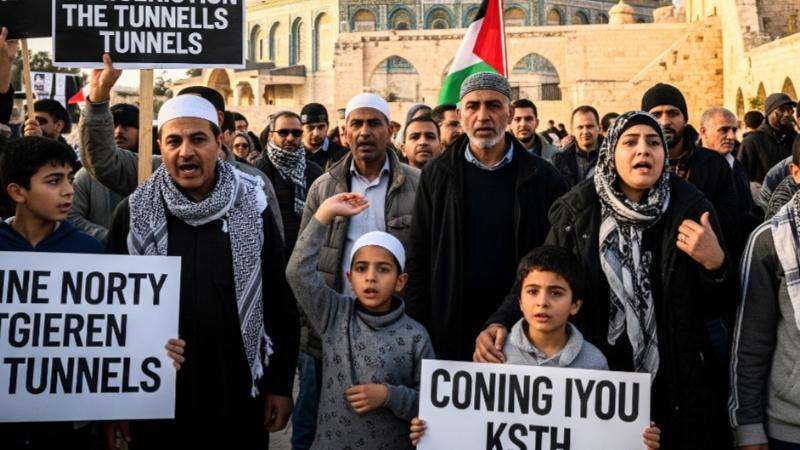Israeli Prime Minister Benjamin Netanyahu's recent tour of a tunnel beneath the Al-Aqsa Mosque compound has ignited widespread condemnation across the Muslim world, escalating already heightened tensions in Jerusalem. The controversial move, which saw Netanyahu release a video of himself inside the tunnel, is viewed by many Muslims as a provocative act and a violation of the sanctity of one of Islam's holiest sites.
The tunnel, which reportedly extends from Silwan to directly underneath Al-Aqsa, has long been a source of contention. Muslim leaders and organizations have expressed grave concerns over the potential structural damage to the mosque due to the excavations. They view the tunnel as an attempt to undermine the Islamic heritage of the area and a step towards altering the status quo of Jerusalem.
The timing of Netanyahu's visit, coinciding with the 58th anniversary of Israel's occupation of East Jerusalem, has further fueled anger. Many perceive it as a deliberate message asserting Israeli dominance over the city. The event also occurred amidst increased incursions into the Al-Aqsa compound by Israeli settlers under military protection, adding to the sense of provocation.
The Organization of Islamic Cooperation (OIC) has condemned the tunnel's opening as a "bold and irresponsible move" aimed at altering the historic and legal status of East Jerusalem. Palestinians and other Muslims fear that such actions could lead to the collapse of the mosque, citing previous instances where excavations have caused cracks in structures above the tunnels.
The incident has triggered a wave of condemnation from across the Arab and Muslim world. Activists have criticized the perceived silence from international and regional actors, arguing that the lack of a strong response emboldens Israel's actions in occupied East Jerusalem. The visit has intensified concerns about the ongoing excavations around Al-Aqsa and their potential impact on the mosque's structural integrity and the religious sentiments of Muslims worldwide.








.svg)


